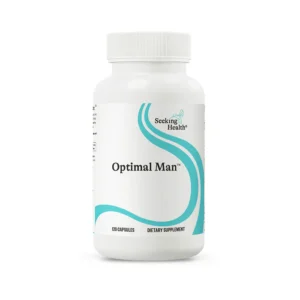Seeking health has become more than a necessity—it is a journey of self-discovery and resilience. Good health is not merely the absence of disease but a holistic state of physical, mental, emotional, and social well-being. With rising stress levels, lifestyle diseases, and mental health challenges, the pursuit of health demands proactive choices, informed decisions, and a commitment to sustainable habits.
The Foundation of Health: Understanding Wellness
The term “health” often evokes images of exercise routines or balanced meals. However, true wellness is much broader. According to the World Health Organization (WHO), seeking health encompasses physical, mental, and social well-being. This definition underscores the interconnectedness of various aspects of life and highlights the need for balance.

A holistic approach to health considers the following dimensions:
- Physical Health: Proper nutrition, regular exercise, sufficient sleep, and avoiding harmful habits.
- Mental Health: Emotional stability, stress management, and fostering a positive mindset.
- Social Health: Building meaningful relationships and staying socially connected.
- Environmental Health: Living in a clean, safe, and sustainable environment.
Nutrition: Fueling the Body and Mind
The food we consume is the cornerstone of our health. Proper nutrition ensures the body receives the essential nutrients needed to function optimally.
Key Principles of Healthy Eating
- Balance: A balanced diet includes carbohydrates, proteins, fats, vitamins, and minerals in appropriate proportions.
- Variety: Eating a wide range of foods ensures a broader nutrient intake.
- Moderation: Avoid overeating or consuming excessive amounts of sugar, salt, or unhealthy fats.
- Hydration: Drinking enough water is vital for overall health.
Superfoods and Their Benefits
Certain foods are nutrient-dense and provide exceptional health benefits. Incorporating these into your diet can boost immunity and vitality. Examples include leafy greens, nuts, seeds, berries, fatty fish, and whole grains.
Meal Planning Tips
- Start the day with a nutrient-rich breakfast.
- Opt for home-cooked meals over processed or fast food.
- Incorporate more fruits and vegetables into your diet.
- Practice mindful eating by savoring your food and eating slowly.
Physical Fitness: Moving Toward Longevity
Physical activity is a vital component of seeking health. Regular exercise strengthens the heart, improves circulation, boosts metabolism, and enhances mental clarity.

Types of Exercise
- Cardiovascular: Activities like running, swimming, and cycling improve heart health.
- Strength Training: Builds muscle, improves posture, and strengthens bones.
- Flexibility: Yoga and stretching enhance mobility and reduce the risk of injury.
- Balance Exercises: Crucial for preventing falls, especially in older adults.
Creating a Fitness Routine
- Set Goals: Define what you want to achieve—weight loss, muscle gain, or overall fitness.
- Start Small: Gradually increase intensity and duration to prevent burnout or injury.
- Stay Consistent: Regular activity is more effective than sporadic, high-intensity workouts.
- Make it Enjoyable: Choose activities you love, whether it’s dancing, hiking, or playing a sport.
The Role of Rest and Recovery
Equally important as exercise is giving your body time to recover. Sleep plays a pivotal role in muscle repair, hormonal balance, and mental rejuvenation. Aim for 7-9 hours of quality sleep per night.
Mental Wellness: The Mind-Body Connection
Mental health is as crucial as physical health. A sound mind can significantly enhance the quality of life, productivity, and interpersonal relationships.
Common Stressors
- Work-related pressure
- Financial challenges
- Relationship conflicts
- Uncertainty or lack of control
Effective Stress Management Techniques
- Mindfulness and Meditation: These practices help center the mind and reduce anxiety.
- Physical Activity: Exercise releases endorphins, which combat stress.
- Time Management: Prioritize tasks to reduce overwhelm.
- Journaling: Writing down thoughts can clarify emotions and foster gratitude.
Building Resilience
Resilience is the ability to bounce back from setbacks. Cultivate it by maintaining a positive outlook, seeking support from loved ones, and focusing on personal growth. seeking health
Preventive Care: The Power of Early Detection
Prevention is better than cure—a mantra that underscores the importance of regular health check-ups and screenings. Preventive care helps detect potential health issues early, improving outcomes and reducing treatment costs.
Essential Screenings
- Blood pressure and cholesterol levels
- Blood sugar tests for diabetes
- Cancer screenings (mammograms, Pap smears, colonoscopies)
- Bone density tests for osteoporosis
- Vision and hearing exams
Vaccinations
Staying updated on vaccines protects against preventable diseases such as influenza, pneumonia, and HPV.
Social Health: The Value of Connections
Human beings are inherently social creatures. Social interactions contribute significantly to mental and emotional well-being.
Benefits of Social Connections
- Reduced feelings of loneliness and depression
- Increased sense of belonging and purpose
- Support during difficult times
- Enhanced cognitive function
Fostering Relationships
- Make Time: Prioritize family and friends.
- Communicate Openly: Honest conversations strengthen bonds.
- Join Communities: Participate in clubs, classes, or volunteer groups.
- Disconnect Digitally: Limit screen time to focus on face-to-face interactions.
The Role of Technology in Health
Technology has revolutionized how we approach health and wellness. Fitness trackers, mobile apps, and telemedicine services make health management more accessible.

Digital Tools for Health
- Fitness Apps: Track workouts, calories, and progress.
- Meditation Apps: Guide mindfulness practices.
- Telemedicine Platforms: Offer virtual consultations with healthcare providers.
- Wearable Devices: Monitor heart rate, sleep patterns, and activity levels.
Overcoming Barriers to Health
Despite best intentions, many face obstacles in their pursuit of health. Common barriers include lack of time, financial constraints, and limited access to resources.
Tips to Overcome Challenges
- Time Management: Incorporate small changes, like walking during breaks.
- Budget-Friendly Choices: Choose seasonal produce and home-cooked meals.
- Community Resources: Look for free fitness classes or health workshops.
- Educate Yourself: Empower yourself with knowledge to make informed decisions.
Seeking Health as a Lifelong Journey
Health is not a destination but an ongoing process of learning, adapting, and growing. Each step, no matter how small, contributes to a better quality of life. Celebrate progress, embrace setbacks as opportunities to learn, and remain committed to your wellness goals.
In the words of Hippocrates, “Health is the greatest of human blessings.” By seeking health with intention and dedication, you can unlock a life of vitality, happiness, and fulfillment.
Call to Action
Start your journey today. Reflect on your current habits, identify areas for improvement, and take one small step toward a healthier you. Whether it’s a brisk walk, a nourishing meal, or a moment of mindfulness, every action counts. Seeking health is the ultimate investment in yourself—because your well-being shapes every aspect of your life.


